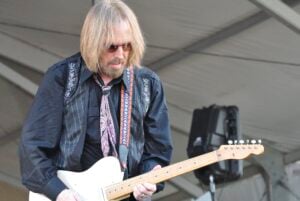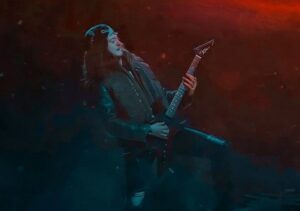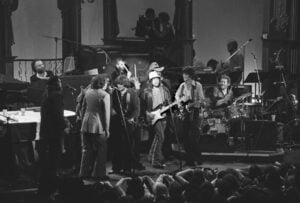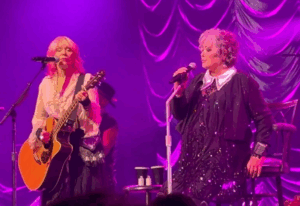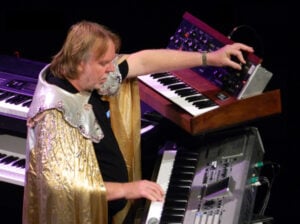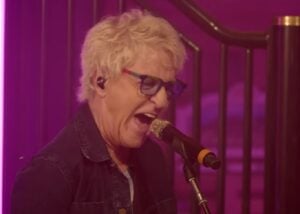9 Classic Rock Bands That Admitted to Using Backing Tracks Live
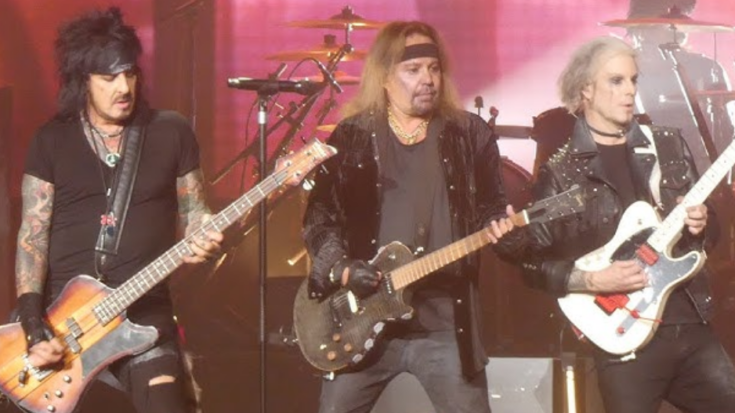
via Paul Roma / YouTube
In live rock performances, the use of backing tracks has become a topic of discussion. While some fans expect entirely live shows, certain bands have acknowledged incorporating pre-recorded elements to enhance their sound. Here are nine classic rock bands that have admitted to using backing tracks during their concerts.
1. Mötley Crüe
View this post on Instagram
Mötley Crüe has openly discussed their use of technology in live performances. Bassist Nikki Sixx mentioned that the band has utilized sequences, backing vocal tracks, and sub tones since 1987 to enrich their sound. He emphasized that they don’t hide this practice and consider it a valuable tool to fill out their live performances. Guitarist Mick Mars, however, expressed discomfort with this approach, preferring the rawness of entirely live shows.
Despite differing opinions within the band, Mötley Crüe continues to use backing tracks to replicate complex studio sounds during concerts. This practice allows them to deliver a consistent and polished performance, aligning with their commitment to providing fans with a high-quality show.
2. Def Leppard
View this post on Instagram
Def Leppard has acknowledged the use of backing tracks to reproduce the layered sounds from their studio recordings. Chris Jericho pointed out that songs like “Pour Some Sugar On Me,” which feature multiple guitar tracks, require additional support during live performances to capture the full sound. The band uses backing tracks to ensure that their live shows match the richness of their studio work.
By incorporating pre-recorded elements, Def Leppard aims to deliver a concert experience that meets fans’ expectations. This approach helps them maintain the energy and complexity of their music in a live setting.
3. Queen
View this post on Instagram
Queen has been known to use backing tracks during live performances, particularly for songs with intricate arrangements like “Bohemian Rhapsody.” Chris Jericho noted that even in the 1970s, Queen employed pre-recorded elements to replicate studio effects on stage. This practice allowed them to present their music authentically, despite the limitations of live performances.
Using backing tracks enabled Queen to maintain the integrity of their complex compositions during concerts. This approach ensured that audiences experienced the full depth of their music, even outside the studio.
4. Guns N’ Roses
View this post on Instagram
Guns N’ Roses has utilized backing tracks in their live shows to enhance their sound. Chris Jericho mentioned that the band employs pre-recorded elements, including keyboard parts, to support their performances. This practice helps them replicate the layered textures of their studio recordings during concerts.
By integrating backing tracks, Guns N’ Roses can deliver a live experience that closely mirrors their recorded music. This approach allows them to meet fans’ expectations for a full and dynamic sound during performances.
5. Shinedown
Shinedown has been transparent about their use of backing tracks in live performances. Guitarist Zach Myers stated that approximately 90% of bands incorporate some form of pre-recorded elements during concerts. He emphasized that this practice aims to enhance the overall sound quality and provide audiences with the best possible experience.
The band’s openness about using backing tracks reflects a broader trend in the music industry. By embracing technology, Shinedown strives to deliver consistent and high-quality live shows.
6. KISS
View this post on Instagram
KISS has faced criticism for using backing tracks during their “End of the Road” tour. Bassist Gene Simmons acknowledged the practice but emphasized the importance of honesty with fans. He suggested that bands should disclose the use of pre-recorded elements on concert tickets to maintain transparency.
Despite the controversy, KISS continues to use backing tracks to support their elaborate live performances. This approach helps them deliver the theatrical and high-energy shows that fans expect.
7. W.A.S.P.
View this post on Instagram
W.A.S.P. frontman Blackie Lawless has admitted to using backing tracks during live performances. He explained that the band incorporates pre-recorded elements to enhance their sound and replicate studio effects on stage. This practice allows them to deliver a more polished and dynamic concert experience.
By using backing tracks, W.A.S.P. can maintain the intensity and complexity of their music during live shows. This approach ensures that audiences receive a performance that aligns with the band’s studio recordings.
8. Deep Purple
View this post on Instagram
Deep Purple has expressed opposition to the use of backing tracks in live performances. Vocalist Ian Gillan criticized bands that rely heavily on pre-recorded elements, stating that he believes it’s a form of cheating. He emphasized the importance of delivering authentic live music without the aid of backing tracks.
Despite their stance, Deep Purple’s perspective highlights the ongoing debate within the music industry regarding the use of technology in live shows. Their commitment to fully live performances sets them apart from bands that incorporate pre-recorded elements.
9. Sebastian Bach
View this post on Instagram
Former Skid Row singer Sebastian Bach has been vocal about his refusal to use backing tracks during live performances. He emphasized his dedication to delivering entirely live shows, even when opening acts use pre-recorded elements. Bach expressed concern that audiences have become accustomed to performances enhanced by backing tracks.
His commitment to live authenticity underscores a divide among artists regarding the use of technology in concerts. Bach’s stance reflects a desire to preserve the traditional live music experience.






